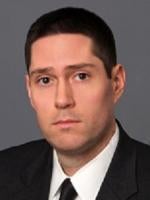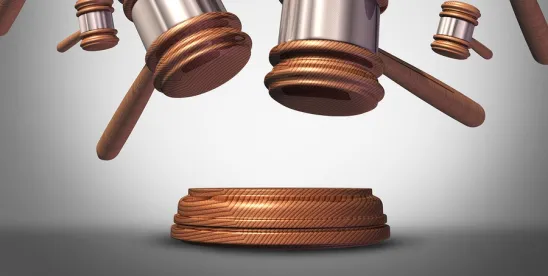On June 13, the U.S. House Judiciary Committee’s Subcommittee on the Constitution and Civil Justice held a hearing on “Lawsuit Abuse and the Telephone Consumer Protection Act”. The House Energy & Commerce Committee has primary jurisdiction over the TCPA. But the Judiciary Committee oversees all matters related to the administration of justice in federal courts and has been active on a number of litigation reform matters, including most recently class action reform legislation. The Subcommittee held the hearing in response to the fact that between 2010 and 2016, TCPA case filings increased by 1,272%, and today TCPA lawsuits are the largest category of class actions filed in federal court. Although some of the Subcommittee’s Democratic members, including Ranking Democrat Steve Cohen (D-TN), questioned the Committee’s jurisdictional interest in the TCPA, the hearing focused on TCPA reform––specifically with an eye toward reducing lawsuit abuse, and the Republicans said they would work with Energy & Commerce on any legislative proposals.
In his opening statement, Constitution and Civil Justice Subcommittee Chairman Steve King (R-IA) said he believes the TCPA needs to be updated so that it is no longer a threat to the existence of small businesses. He also recognized the very important need to maintain privacy protections for consumers. Full Committee Chairman Bob Goodlatte (R-VA) expressed concern that the TCPA, which has not been significantly revised since its passage in 1991, needs to be amended to account for evolving technologies. For example, faxed business solicitations, and concern for consumers shouldering the cost of ink and paper, have lessened significantly in the intervening decades. Further, over 50% of calls currently cannot be prosecuted because they are made through ID spoofing. During his questioning of witnesses, Chairman Goodlatte also expressed consternation with judges for not recognizing the need for businesses to be able to communicate with their customers and for approving large-dollar settlements for technical violations of the statute. On the other hand, Subcommittee Ranking Member Cohen voiced his strong support for the TCPA in its current form, saying that the private right of action in the statute is crucial to consumer protection and should not be weakened. All parties seemed to agree that there should be a prohibition on unwanted and unauthorized communications, as well as communications after the consumer has revoked consent.
The four witnesses who testified at the hearing were: Mr. Rob Sweeney, Founder & CEO of Mobile Media Technologies LLC; Ms. Becca Wahlquist, who testified on behalf of the Chamber of Commerce’s Institute for Legal Reform; Mr. Hassan Zavareei, a public interest plaintiff’s attorney; and Mr. Adonis Hoffman, Founder & Chairman of Business in the Public Interest. Mr. Sweeney shared his personal experience as a small business owner who developed and patented an app that allowed businesses to communicate with consumers who opt in using a two-step authentication process. He described how one individual signed up for the app under six different names and then opted out of the service and sued many of Mobile Media’s customers who had purchased the app. The customers dropped the app because of their fear of further lawsuits. Ms. Wahlquist testified that ambiguities in the TCPA are fueling a “cottage industry” of plaintiffs’ bar members and serial plaintiffs who are using the law to leverage large-dollar settlements. She also said that TCPA suits are not being brought against fraudulent and overseas telemarketers, because those calls are placed through means nearly impossible to trace. Rather, suits are being brought against legitimate businesses trying to provide their customers with essential information, such as flu shot reminders and credit card fraud notifications. Mr. Zavareei opposed TCPA reform, arguing that the statute is working as intended because it punishes unlawful conduct, and that the only reason the number of suits has gone up is because the number of unwanted calls and texts has gone up. He disagreed that increasing the number of public interest exceptions would be desirable for fear they would swallow the rule. Mr. Hoffman, who served as the chief legal advisor to FCC Commissioner Clyburn when the FCC adopted its TCPA Omnibus Declaratory Ruling and Order, argued that businesses want to comply with the TCPA, but that the law is ambiguous and companies are now being asked to pay huge settlements that are disproportionate to their alleged wrongdoing.
Subcommittee Chairman King asked Ms. Wahlquist about the number of TCPA suits that settle, and she advised him that most defendants settle rather than risk their businesses with multi-million dollar adverse rulings. He was surprised to learn that many insurers now have specific carve-outs in their policies against covering TCPA violations. Subcommittee Member Rep. Trent Franks (R-AZ) said he believes that the current structure of the TCPA incentivizes plaintiffs’ lawyers to prey on small businesses. He believes that the statute is so ambiguous that most companies which are sued for TCPA violations were actually trying to comply with the statute, making it impossible for the statute to have a deterrence effect.
Subcommittee Member Rep. Jerrold Nadler (D-NY) said that the main purpose of the TCPA was deterrence for companies, so he was less concerned that plaintiffs’ attorneys receive large payouts and individual class members receive only small amounts. Rep. Nadler also asked for specific recommendations on how to reform the TCPA. Ms. Wahlquist’s suggestions included creating damage caps, adding affirmative defenses, and imposing a one year statute of limitations on TCPA claims. Mr. Hoffman also suggested capping awards and providing a safe harbor for substantial compliance with the statute. In addition, he said that once the U.S. Court of Appeals for the District of Columbia rules on the pending challenge to the FCC’s 2015 TCPA Omnibus Order (discussed here), the FCC should revisit and revise the Order. He expressed confidence that under the now Republican-controlled FCC, the new Order’s clarifications would be far different than those now in effect. Subcommittee Member Rep. Louie Gohmert (R-TX) said he would be in favor of narrow, specific carve-outs for wanted healthcare communications and that he too would like to see the FCC clarify portions of the TCPA.
Chairman Goodlatte concluded the hearing by saying “I don’t know what the solution is, but we should do something.” It is too early to speculate on what that “something” will be or whether it will come from Congress, or the FCC, or both. But clearly the Judiciary Committee hearing helped highlight some of the problems with the TCPA and the need to update and reform the statute.







 />i
/>i


